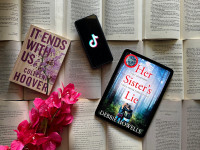Fall in Love with Criticism

By G. Miki Hayden
Instructor at Writer's Digest University online and private writing coach
firstwriter.com – Wednesday June 26, 2019
Let’s raise our glasses to our true friends who can tell us that our participles are dangling and that our story is too soft. And let’s try to be the type of writers who are brave enough to accept and utilize criticism!–Nancy French
We humans are highly socialized to be tactful in what we say to others, and in turn, we expect others to consider our feelings when they speak. Of course this isn’t the type of world where such tiptoeing around always goes on, and sometimes we receive feedback that crushes our sensitivities. Moreover, writing/publishing isn’t a business in which people will respect our egos, and thank goodness, because if we want to improve as writers and submit until we sell, we have to be ready to listen to the advice we’re very unkindly (we think) being given.
I recently had a student turn all psycho on me because I wasn’t as delicate with my feedback as she had hoped. I honestly don’t know why she reacted the way she did since I didn’t think what I said was so terrible. At any rate, we soon made up as she actually did value the feedback I gave her—but she put limits on what I might say. Does that sound wise? Well, it’s not. I, myself, have spent years learning one thing or another, and one piece of wisdom I picked up is that if you want help from someone, you don’t block their delivery of it. You say thank you when they excoriate you, because a real teacher means to help and not to harm and has the knowledge you want to acquire.
Biting your tongue and accepting what’s said is the proper path, even when the teacher exaggerates or might (probably not) in this instance be wrong.
When the agent or editor returns a carefully thought-out page of suggestions, you don’t want to hiss like an angry feline and claw back. Consider yourself on the edge of opportunity and say, “Thank you. I’ll mull over your ideas.” And that’s what you say even if you never in a million years would do business with your idiot critiquer after that. Not simply because the person could be right and after you calm down, you might concede a few points, but also because this is a small, small business world, and reacting like a maniac will earn you a reputation you don’t want to carry around for the next 20 years.
Critique Partner, Beta Reader
Now does this extend to working with a critique partner? Good question, and the answer is sort of.
Some people like to work with a critique partner instead of paying for a class. Understandable. But do parners always have a depth of understanding as to what they’re looking at? Have they had years of reading and evaluating writing? Maybe not, but they may have genuine insights and can certainly be accessible (most of the time). However, that doesn’t mean you need to work with someone who seems abusive.
Again, screaming at the other person isn’t the answer, but if the feedback appears to be more punative than constructive time after time, maybe bowing out would be the best solution to the relationship. Also, the moment to leave may have come if you’re giving more in terms of time and thought than you’re receiving. You’ve broken up with other folks more than once in your life and probably have a white lie or two at hand to fit the occasion. “I’ve decided to…wash my hair. …go to Hawaii for the next six months…” And then you experience a wonderful emotional release as if you’ve just been freed from a maximum security cell.
Do you feel guilty? Did you do the wrong thing? Well, you can generally pick up another critique partner in a Facebook group who won’t be so…mean.
Similarly, a lot of authors like to use beta readers for their reaction to a novel or some piece of work. I sometimes recommend them to a student myself. Just the other day when I felt clueless as to what the student was going on about in his writing, I suggested he check with some beta readers and not let through his fight scenes until two readers gave him a thumbs up. “Keep rewriting and asking different people to read until two in a row say they understand. Of course they could be mistake or lying,” I said. I inserted a “I’m kidding” emoticon to lighten the mood.
But if you ask for a beta reading, be polite and say thank you and give some thoughtful response to their evaluation. The last time I read for a certain author, I told her that her (already edited) novel had a lot of errors. She neither said thanks nor did she express more than minimal concern. Do you think I would ever read for her again? Well, I guess her reaction let me off the hook.
So not only don’t complain about the criticism you receive, but always include the words, “Thanks for the feedback.” That’s not just a decent way to react but good practice for dealing with the all-important people in your publishing life, your agents and editors.
Whether you like what they have to say or not, do consider what everyone suggests. Don’t be stuck on your own point of view—nor immediately buy into what is being told you. Contemplate all advice and let it simmer until you make up your mind. Be judicious, not reactive. You don’t really know if you’re correct about your writing—or just frozen in a pattern that won’t take you where you want to go.
Practice listening to what others have to say. Slowly but surely, become aware of your writing limitations, take a little wise advice, and widen your scope while enlarging your chances of being published.
About the Author
G. Miki Hayden is a short story Edgar winner. She teaches a mystery writing and a thriller writing and other writing classes at Writer's Digest online university. The third edition of her Writing the Mystery is available through Amazon and other good bookshops. She is also the author of The Naked Writer, a comprehensive, easy-to-read style and composition guide for all levels of writers.
Miki's most recent novel out is Respiration, the third book in her Rebirth Series. The New York Times gave her Pacific Empire a rave and listed it on that year's Summer Reading List. Miki is a short story Edgar winner for "The Maids," about the poisoning of French slave holders in Haiti.
"Holder, Oklahoma Senior Police Officer Aaron Clement is out for justice above all, even if he irritates the local hierarchy. Hayden in Dry Bones gives us nothing-barred investigation and plenty of nitty-gritty police procedure—which makes for a real page turner." — Marianna Ramondetta, author of The Barber from Palermo




 How does anyone make a living writing about what they love these days?
How does anyone make a living writing about what they love these days? How a Digital Publisher Fell Back in Love With Print Books
How a Digital Publisher Fell Back in Love With Print Books What Acclaimed Authors Love About Writing
What Acclaimed Authors Love About Writing Magazine Rejections and Learning to Love the Hate
Magazine Rejections and Learning to Love the Hate A writer's lament: Literary efforts are labors of love, but bittersweet
A writer's lament: Literary efforts are labors of love, but bittersweet Romance fiction authors reveal their secrets to writing about love and sex
Romance fiction authors reveal their secrets to writing about love and sex How to write a love poem
How to write a love poem If I Hate Violence So Much, Why Do I Love Writing About It?
If I Hate Violence So Much, Why Do I Love Writing About It? Writing Grief in Fiction is a Work of Love
Writing Grief in Fiction is a Work of Love When bestsellers fail to deliver: Don’t fall for the promises of book tok reviews
When bestsellers fail to deliver: Don’t fall for the promises of book tok reviews How I got a literary agent - An interview with author James R. Larson
How I got a literary agent - An interview with author James R. Larson firstwriter.com subscriber wins Ruth Rendell Short Story Competition
firstwriter.com subscriber wins Ruth Rendell Short Story Competition How I got a publisher - An interview with author, Lynette Mather
How I got a publisher - An interview with author, Lynette Mather Best Practices for Selling Your Book to Agents and Editors (or How to Avoid Being Delusional About Getting Published)
Best Practices for Selling Your Book to Agents and Editors (or How to Avoid Being Delusional About Getting Published) Sharing the writing experience... online
Sharing the writing experience... online The 2010s were supposed to bring the ebook revolution. It never quite came.
The 2010s were supposed to bring the ebook revolution. It never quite came. On navigating the publishing industry
On navigating the publishing industry New Literary Agent Listing: Gabrielle Demblon
New Literary Agent Listing: Gabrielle Demblon Reading Force is delighted to welcome submissions from adults, children and young people to its 2025 Memoir Writing Competition
Reading Force is delighted to welcome submissions from adults, children and young people to its 2025 Memoir Writing Competition New Publisher Listing: Cicada
New Publisher Listing: Cicada Calling all aspiring authors! Here's your chance to win a one-to-one session with a literary agent - plus £1,500
Calling all aspiring authors! Here's your chance to win a one-to-one session with a literary agent - plus £1,500 New prize for translated poetry aims to tap into boom for international-language writing
New prize for translated poetry aims to tap into boom for international-language writing New Literary Agent Listing: Kaylyn Aldridge
New Literary Agent Listing: Kaylyn Aldridge TikTok parent ByteDance is shutting down its short-lived book publisher
TikTok parent ByteDance is shutting down its short-lived book publisher New Magazine Listing: And Other Poems
New Magazine Listing: And Other Poems New Literary Agent Listing: Helen Lane
New Literary Agent Listing: Helen Lane UK audiobook revenue up by almost a third last year
UK audiobook revenue up by almost a third last year New Publisher Listing: Radio Society of Great Britain
New Publisher Listing: Radio Society of Great Britain New Magazine Listing: Emerge Literary Journal
New Magazine Listing: Emerge Literary Journal New Literary Agency Listing: Ghosh Literary
New Literary Agency Listing: Ghosh Literary New Publisher Listing: Hardie Grant
New Publisher Listing: Hardie Grant
